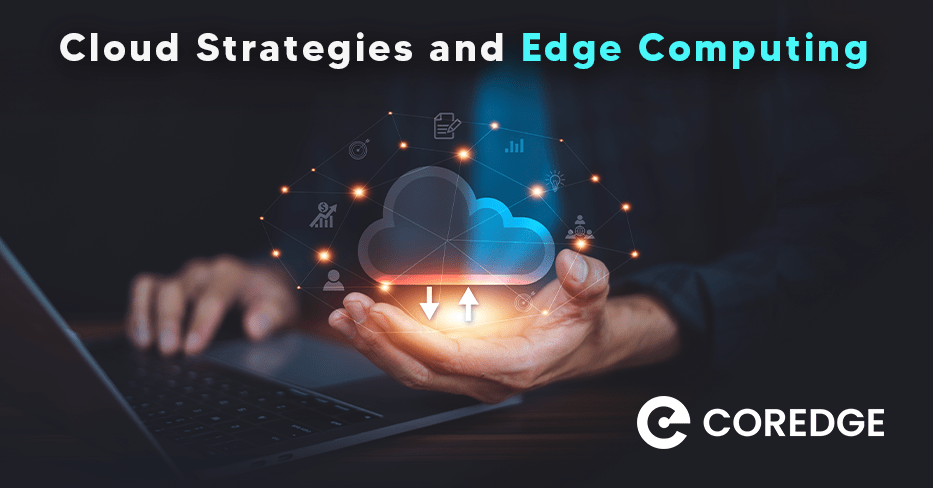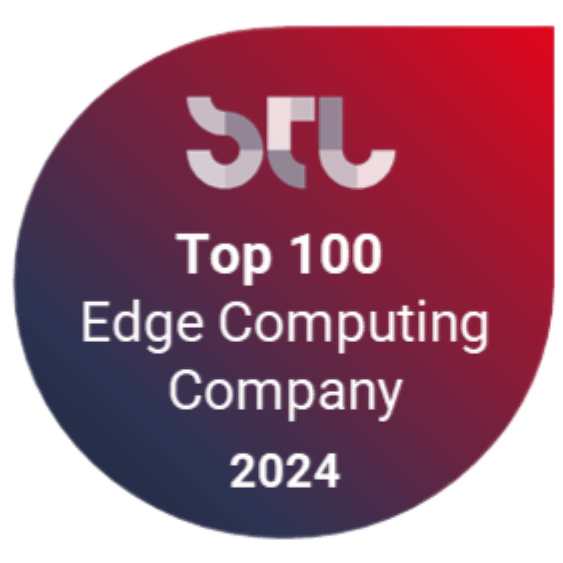Brief on Telecom Industry Survey 2021
Coredge Marketing
December 20, 2021

Today, the telecommunication industry is one of the most dynamic and rapidly growing industries worldwide. Irrespective of the Covid-19 pandemic, the Telecom industry continues to deliver predictable growth and find out diverse ways beyond the expectations in terms of offering network connectivity to users. Yet, there is a decline in terms of revenue due to the effect of digital transformation, more market competition, changing business needs, and customers’ expectations too. It is highly needed that telecom service providers should have the ability to change, adapt, and develop according to the marketing arena so that they remain competitive throughout the journey.
To find out the outlook of the telecom industry and new growth opportunities, Telecoms.com Intelligence has carried out Annual Survey recently. As per the latest Annual Industry Survey 2021 report by Telecoms.com Intelligence, it is estimated that 2021 has been a good year for 72% of Telecoms approx. and 82% of telecom industries will have a positive outlook for 2022.
Have a look at the top 10 major highlights to determine the opinion of the industry professionals on the past and future of the telecommunication sector:
Adaptability to Changing Demand Post Covid-19
Telecom industries focus on becoming nearly 48% adaptable to the changing demand post-Corona outbreak to meet the network expectation of the users accessing the specific network services. On average 30% of the telecom, businesses are trying to pent-up demand, so that they can bounce back stronger than they are, before the Corona pandemic. However, it is also true that some telecom industries or say 19% of the telecoms would not be fully come back to normal like the pre-covid-19 pandemic.
Priority Investment Areas in First Phase:
Currently, telecoms industries are focusing on 5G initial deployment, digital transformation, and 5G densification-like investment areas.
In the first phase, these industries might have certain investment targets for different areas, and it can be turned out to be a strong alignment between the company to invest in and survey participants planning for investment in the areas. Talking about the next 3 years, 50% respondents select 5G initial deployment 4 points ahead to digital transformation in the first phase. It would be interesting to see how respondents are choosing the technologies in the next phase and considering the outlook of the telecommunication sector.
Priority Investment Areas in Second Phase:
Considering focused investment target, more respondents choose Artificial Intelligence and Machine Learning in the second phase and this is why, AI/ML becomes a contentious subject among the professionals in the telecom world. The value of AI/ML has been increased due to the cloudification of telecoms operations. Almost all telecom industry is giving emphasize to migrate on the public cloud for secured data storage. A comparable number 27% respondents mark IoT or industrial IoT as overhyped technologies today and 26% respondents stress the importance of 5G densification.
5G Field Testing:
5G is the fifth-generation technology that is 100 times faster than 4G and helps to better serve the enterprise market. However, there are some aspects of 5G field testing that can be your greatest concern in the telecoms.
Adoption of 5G Functions & Biggest Driver for 5G Network Transformation:
Telecom service providers need to move ahead with 5G deployment to drive growth in digital transformation era. With the help of third-party partnerships, telco service providers are planning to grow their revenue and focus more to avoid any disappointments or missed choices. On an average basis, 10-30% 5G operator’s revenue will come from such partnerships by the end of year 2025. Approx. 23% respondents also think that <10% third party partnership idea will work. This is high target for generating revenue, which needs not only to transform network capabilities but also unique business operations.
5G network has been rolled out to match the customers’ expectations. 34% respondents think that competitive pressure to offer new services could be the biggest driver for bring transformation for 5G network. Close to this number, 30% of the respondents give emphasize on new revenue streams from 5G services.
However, some challenges might become a hurdle in business transformation for a cloud native environment. For 52% litigant, the biggest challenge is the security concern while migrating telco apps to the public cloud. As there are more chances of data loss or data being hacked by other servers. Closer to this challenge, 33% respondents find insufficient internal resource and knowledge to design or manage the transition is a big challenge. While some think that it is challenging to make a business case that could assist in migrating to the public cloud.
Adoption of Open RAN:
The security aspect is one of the top barriers (for 56% of respondents) to the adoption of Open RAN. It is estimated that 2/3rd of the total respondents is planning for commercial Open RAN solution deployment in the next 5 years. For almost 50% of the respondents, another barrier to Open RAN adoption is the lack of advanced technology, ecosystem, offerings, interoperability parameters too. Thus, telco operators should work on interoperability testing and certification requirements and overcome this obstacle.
It is crucial to mitigate security concerns and take effective measures to support Open RAN deployment. These measures include embedding security in Open RAN architecture by industry organisations, in-house expertise in developing security, regional governance and right security approach, leveraging solutions with the help of third-party security experts, and so forth. Nearly 50% of the respondents believe that it turns out to be efficacious if industry organisations would embed security in Open RAN architecture and follow some regional governance to resolve security issues.
Did you know that Open RAN Can Do Wonders when it comes to the Total Cost of Ownership? Open RAN is capable enough to decrease the TCO of an operator by some degrees. As per the current estimation, 38% of respondents believe that Open RAN could increase the total cost of ownership and 28% are completely opposite to this notion, they believe that it will help in decreasing TCO. However, the other 12% think that the impact of the Open RAN solution will be zero and TCO will same then after too.
The telecom operators should have a functional plan with referring to commercial Open RAN operations and cloud environment. These ways include keeping RAN in its own hosted data centers along with existing & new RAN operations providers, RAN operation with a perfect mix of single cloud and self-hosted partners, operate RAN with the help of a single cloud partner or across multiple cloud partners.
Diving deep into the rating portion by the respondents to these ways to monetize Open RAN, the highest rating (41%) is given to keep RAN in its own hosted data centers along with vendors, and the next rating (27%) is given to operate RAN using a mix of self-hosted and single cloud partner.
Wrapping up, the telcos are renewing and retransforming their industry to keep pace with the service offerings and get the attention of more subscribers. Therefore, every year the industry survey is taken and innovations in the telecom sector have been analyzed for betterment. Through this survey, it is easy to determine how different telco networks are scaling up at a steady rate.





